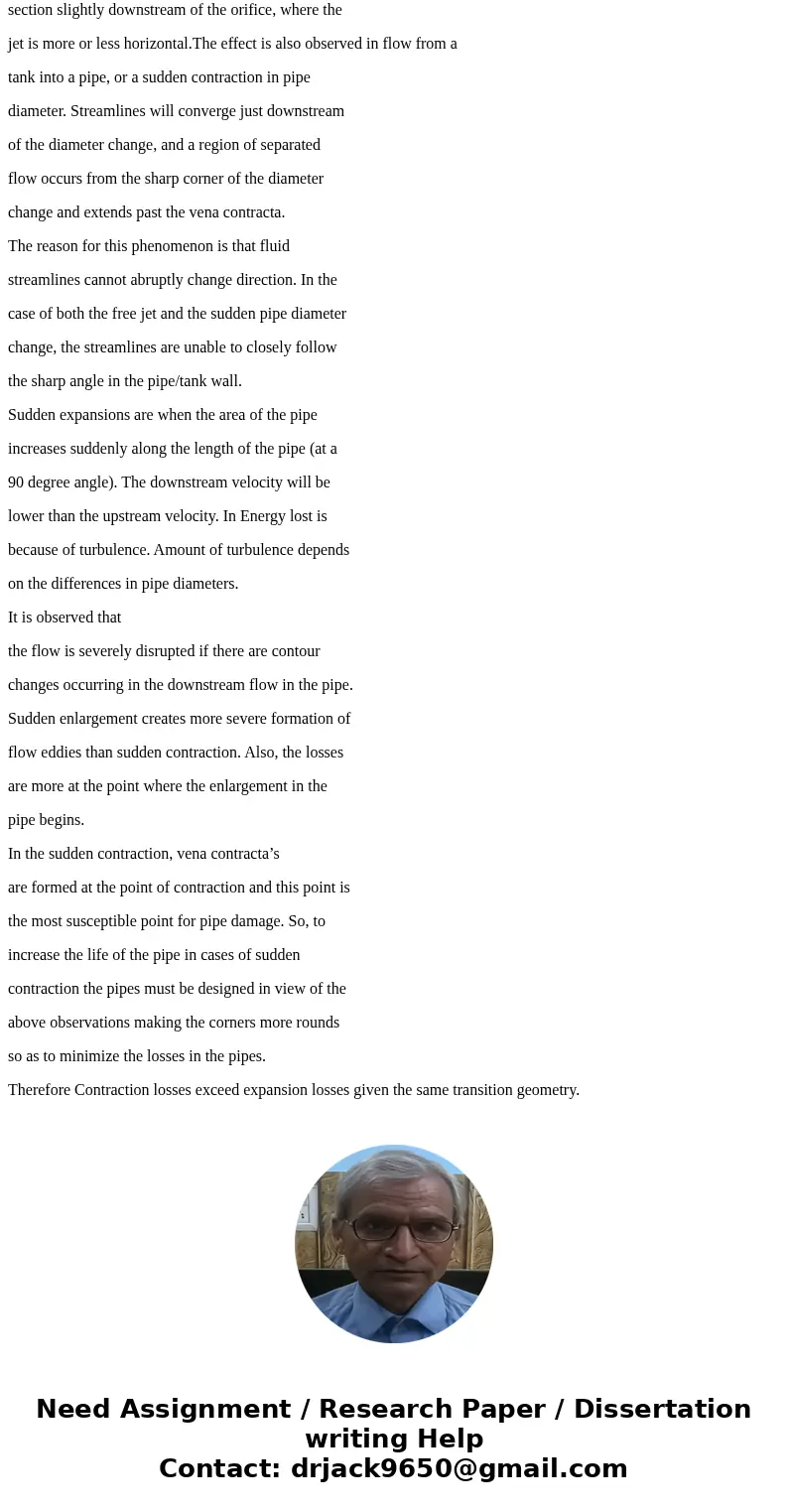Contraction losses exceed expansion losses given the same tr
Contraction losses exceed expansion losses given the same transition geometry?
Solution
The pressure loss through the contraction is caused by
two consecutive processes:
(1) Contraction of the flow to the vena contract, and
(2) Expansion to the wall of the small pipe.
The latter is an uncontrolled expansion against an
adverse pressure gradient. Vena contracta is the point
in a fluid stream where the diameter of the stream is
the least, and fluid velocity is at its maximum, such as
in the case of a stream issuing out of a nozzle,
(orifice).The maximum contraction takes place at a
section slightly downstream of the orifice, where the
jet is more or less horizontal.The effect is also observed in flow from a
tank into a pipe, or a sudden contraction in pipe
diameter. Streamlines will converge just downstream
of the diameter change, and a region of separated
flow occurs from the sharp corner of the diameter
change and extends past the vena contracta.
The reason for this phenomenon is that fluid
streamlines cannot abruptly change direction. In the
case of both the free jet and the sudden pipe diameter
change, the streamlines are unable to closely follow
the sharp angle in the pipe/tank wall.
Sudden expansions are when the area of the pipe
increases suddenly along the length of the pipe (at a
90 degree angle). The downstream velocity will be
lower than the upstream velocity. In Energy lost is
because of turbulence. Amount of turbulence depends
on the differences in pipe diameters.
It is observed that
the flow is severely disrupted if there are contour
changes occurring in the downstream flow in the pipe.
Sudden enlargement creates more severe formation of
flow eddies than sudden contraction. Also, the losses
are more at the point where the enlargement in the
pipe begins.
In the sudden contraction, vena contracta’s
are formed at the point of contraction and this point is
the most susceptible point for pipe damage. So, to
increase the life of the pipe in cases of sudden
contraction the pipes must be designed in view of the
above observations making the corners more rounds
so as to minimize the losses in the pipes.
Therefore Contraction losses exceed expansion losses given the same transition geometry.


 Homework Sourse
Homework Sourse